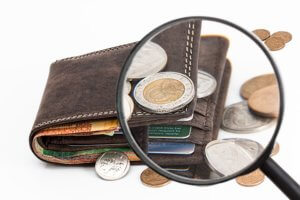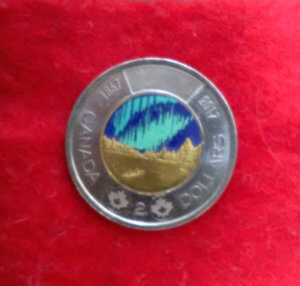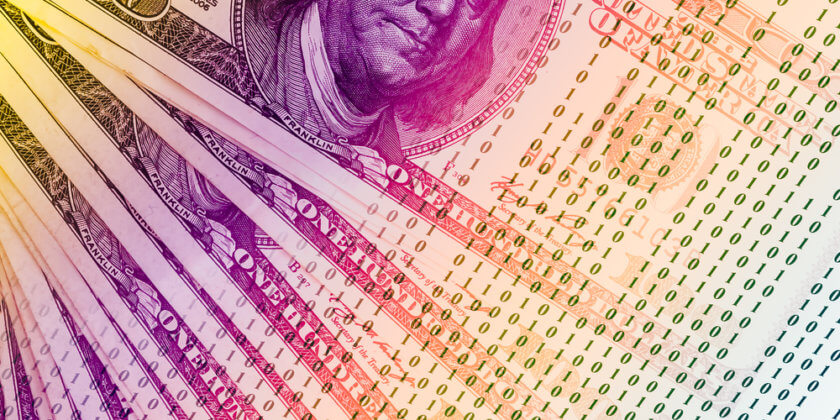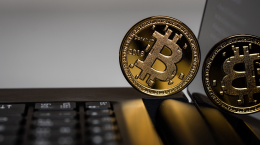
“It’s not slow jazz. It’s punk rock. Deal with it.” –– Andreas Antonopoulos, cryptocurrency educator, author of Mastering Bitcoin
Feeling intimidated by cryptocurrency? Understanding money is a skill. Depending on the messages about money we grew up with, there may some emotions in the way. While we may not always be up to healing the wounds of our troubled youth, we can always resolve to start adulting. Or, at least adulting enough to take it upon ourselves to figure what the big deal is with cryptocurrency.
The first hurdle? Maybe, like many of us, you never had that clear a picture of money in the first place. Parents or teachers can leave questions about how money works in a perpetually-delayed zone, what flip-chart facilitators like to call “The Parking Lot”. We don’t need a Rich Dad to tell us the wealthy teach their kids different stuff about money. Because they must know something, right? Even if it’s just how to hide the fact that you’re wealthy.
While the filthy rich community may want to shroud their wealth in secrecy, people who know cryptocurrency –i.e. open source development communities– often seem to want other people to know crypto, too. So now’s the time to get the lowdown on what money actually is, now that we have finally have something to compare it to other than the ancient barter system known as Bunz. This cryptocurrency stuff is an honest-to-goodness new thing, and one thing that makes it so remarkable is that it’s not fiat currency. Here’s 5 important things about fiat currency that we might not think that much about without crypto around:
FIAT currency?

No, not like that.
- Borders.
One thing you’ll notice about the money in your pocket is that it has the name of a country on it. And usually some sort of sovereign ruler whose history is likely vigorously contested. All this kind of goes along with the word “fiat”, or “by decree” which, naturally, conjures up images of rolled parchments and unquestioned rules ordered by enthroned demigods with over-designed crowns and robes.
And this job, Decree Announcer:

Needs more “Hear Ye.”
Of course, whether it’s an actual Royal, a government, or a long-dead economist ordering us to recognize these inherently useless pieces of paper as legal tender, you can’t actually be forced to use it. But businesses that want to stay on the right side of the decree, if they know what’s good for ’em, have to accept it as payment. (It doesn’t mean they can’t accept other forms of payment, though, right? Right. Have some CorrectamundoCoin.)
From time you time you’ll find the local store’s debit machine is broken, but you never see a hastily scrawled NO CASH TODAY. (If you ever do happen to see such a sign at the bank? Not a good economic indicator. Speaking of banks…:)
2. Banks.
Who cares, you ask, if some monetizin’ eggheads named my money after what Kings get to do? I may not know money but I know what I’m used to. Because of course you do: you put money in the bank; they keep it; you go and get it out when you want to exchange the paper tickets for something of value.
You put money in the bank, OK. Why, exactly? Because it’s safe there? That interest rate? Because this conveniently lets you pay with a tap everywhere you need to? Fine, there may not be too many places you can do that with Bitcoin yet, but the key thing with cryptocurrency is you don’t need a bank to use it. A decentralized peer-to-peer network verifies transactions, which also means that your wallet app, and the trustable verification that you’d usually associate with a bank, are now sort of the same thing.
And what is a bank keeping anyway? Your actual bills? No. When particular bills wear out, no one’s balance changes . A bank is keeping a ledger, the same thing the blockchain does. And getting money out simply means that the bank converts an amount in their ledger to a paper ticket or coin that a) you can lose and b) probably has a dumb nickname. (e.g.”Toonie”)
 Fiat currency still has the glowing-in-the-dark advantage.
Fiat currency still has the glowing-in-the-dark advantage.
Spending a Bitcoin directly from your wallet app may not seem all that different from making an electronic transfer from your bank, but different it is, mainly because the wallet belongs to you, and the bank belongs to someone else. A whole bunch of someone elses, who, by the way, have a lot of information about you. While Bitcoin isn’t exactly anonymous, there’s no required filling out of forms to prove you are really the real you.
3. Your Money Is Worthless.

The Bank Of Scotland, promising to pay you one of these. Like this one.
One thing fiat and crypto have in common in that neither is actually backed by anything. It’s true, insurance might guarantee your bank deposits, but those bills aren’t actually guaranteed redeemable for anything at all. Come to think, both of these currencies are fundamentally worthless in a way my Rainbow Cinema Gift Certificate isn’t: if the price of theatre movies ever crashes, five dollars of RCGC could be a year’s worth of movie! A never-expiring gift certificate should retain its worth over time in almost-first-run movies.
 No Expiry Date!
No Expiry Date!
The money we’ve grown up with used to hold its specific value in a similar way, only slightly better, because it was backed by gold. When countries adopted the Gold Standard in the Thirties, it meant your $1 bill always represented a particular measure of gold. This changed not really all that long ago, as long as your idea of ‘not really all that long ago’ includes President Nixon. All your money means now is, this $1 bill is worth $1. Great.
4. Technology Has Changed Money More Than It Has Changed Banking.
So far, anyway. Yes, of course, you can access your bank account online, but that’s connecting to a ledger-keeping institution (i.e. bank) that also happens to have a website. The decentralized peer-to-peer nature of the blockchain ledger means it would have been hard to even conceive of before the internet and computational encryption came along. (Heck, it’s hard to think about it now, and it’s existed for 8 years!)
When you get fiat bills from an ATM, you only care about getting the right amount. You don’t need your actual specific bills. With cryptocurrency, every coin has a history: every time you spend, you’re spending a particular coin from a particular transaction. And you can spend a tiny amount of that particular coin, unlike the 1/100ths, (a.k.a. “pennies”) that fiat currency limits you to using. It’s as if you could put a dollar bill through a paper shredder — but every piece of confetti retains its value.

Take that, pennies.
5. Economic Crashes
Do you have faith that the money in your pocket will be worth about the same tomorrow? If you answered ‘Yes’, it means something intangibly upbeat about your country’s economy. Any currency has value because people believe it will continue to have value. When we were walking around with gold coins in our pockets, we may not have known where the price of gold was going, but we knew gold would still be gold. No currency can be free of volatility—the tendency to rise and fall in value – and right now our familiar fiat currency is less subject to wild fluctuations than cryptocurrency is.
But that’s also because there’s people at the top of the nation’s financial structure pulling levers like the interest rate. The cryptocurrency world might have its VIPs, enthusiasts, investors, and advocates, but it doesn’t have the same kind of “people at the top”. Such people are all too human, and governments can take drastic measures. Economically strapped governments can announce one morning that they’ve decided to give everyone’s savings a little trim off the top! (It’s happened. And you thought you were upset when your Air Miles expired.) It’s easy to see how cryptocurrency could become attractive. You might need to keep any centralized middleman’s grubby hands and eyes off your money all of a sudden.
Even in dire times, the first question to ask about any currency, fiat or crypto, doesn’t change: What can I do with it? Knowing the differences, you can have a plan for economic downswings as well as upswings. A good plan can be a kind of wealth that’s more real than any currency—even movie gift certificates.




